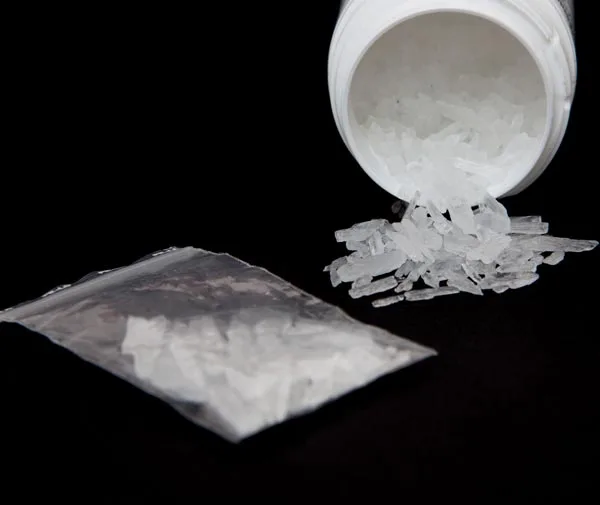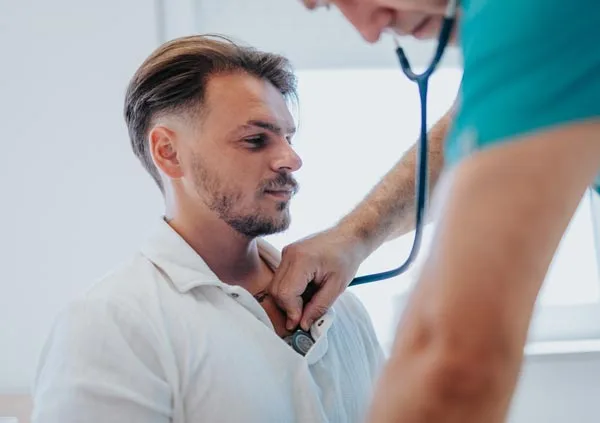Get Proven Support to Achieve Recovery from Meth at Ingrained
You already know the stark reality: meth addiction is painful and destructive for both individuals using the drug and their families. If you or someone in your life has an addiction to meth, it is not enitrely your fault. As odd as it may seem, addiction can serve a profound purpose; determining why drug addiction starts and how to move into a different way of life is often an integral part of addiction treatment.
However, getting through the detox process is an important first step.
When you stop taking meth or decrease the amount of meth you use, you may experience withdrawal symptoms. Participating in an inpatient detox program can help you through meth withdrawals and prepare for the next steps of the recovery process. If you’re looking for proven meth detox center Georgia services, Ingrained Recovery can is a leading choice.
Ingrained Recovery offers detox and inpatient rehab programs for those overcoming substance abuse in many forms, including meth addiction. We accept insurance, and our luxury facility is surrounded by a strong recovery community in Georgia. So, what should you know?
First, let’s talk about what meth is, common meth withdrawal symptoms, and how our detox center can help. Then, we’ll discuss the role of continued rehab post-detox, what to expect in rehab at Ingrained Recovery, the need for meth addiction treatment in Georgia, and signs of meth abuse to look out for in yourself or someone you know.
Get Effective Treatment Programs at Ingrained Recovery

What is Meth?
Meth, or methamphetamine, is an illicit and powerful stimulant drug. Methamphetamine affects the central nervous system, leading to elevated energy levels, alertness, mood, and concentration. At least, those are the short-term effects of using meth.
Continuing to use meth for longer perioids can result in brain changes and other severe, devastating consequences, such as loss of employment, legal problems, and dental problems.
The Most Common Methamphetamine Withdrawal Symptoms
If you have not gone through the detox or withdrawal process before, you may wonder what symptoms to expect during the detoxification or meth comedown process. At our meth detox center in Georgia, your case will be in the best hands possible, with staff members by your side to support you.
The Types of Physical Withdrawal Symptoms from Meth
Physical withdrawal symptoms are usually the first to dissipate during the methamphetamine withdrawal process, but they can be highly uncomfortable at the beginning of the detox process. Common physical symptoms of meth withdrawal include:
- Dry mouth
- Blood pressure changes
- Insomnia or trouble sleeping
- Headaches
- Muscle spasms
- Appetite changes
You may notice other symptoms, too, such as dehydration or fatigue. Self-care can be difficult at this time, so having a treatment team by your side for assistance can be critical.
Psychological Withdrawal Symptoms Produced by Meth
Psychological symptoms of meth withdrawal can be just as challenging to cope with as physical withdrawal symptoms. Here are some common psychological symptoms people experience during meth withdrawal.
- Depression
- Mood swings or changes in mood
- Difficulty feeling positive emotions or pleasure
- Meth cravings
- Anxiety
Sometimes, people experience psychological withdrawal symptoms for longer than other meth withdrawal symptoms. For example, new or worsening depression symptoms. The inpatient rehab program at Ingrained Recovery can help you cope with and address psychological symptoms like depression after the medical detox is over.
Our Meth Detox Center in Georgia
Medically supervised detox is almost always the first step in treatment for those overcoming an addiction to meth or other drugs. Getting off of meth on your own or cold turkey can be difficult and is not recommended, as the acute (initial) withdrawal stage can come with intense cravings and a high potential for relapse.
Withdrawal symptoms can also be uncomfortable or dangerous. At our meth detox center in Georgia, staff members address meth withdrawal symptoms through non-addictive medications and other treatments. For example, ensuring that you have adequate hydration. These treatments will lessen withdrawal symptoms and reduce discomfort.
Clients generally stay in medically supervised detox for meth and other substances for 1-2 weeks or less. At that point in time, acute drug withdrawals subside and the body starts to stabilize.

Our Inpatient Meth Addiction Treatment Program
After detox, you can do the deep inner healing work necessary for addiction recovery in our inpatient addiction treatment program. Our residential inpatient treatment setting is an ideal solution for those overcoming crystal meth or methamphetamine addiction because it provides the following:
Room and board.
You will live on-site at Ingrained Recovery during inpatient rehab. Living on-site at an addiction treatment center means that you cannot access substances like meth or other drugs.
24/7 supervision and support from staff members.
A residential inpatient environment like ours reduces the potential for relapse early in recovery; substances are not allowed on-site, and staff are here to help you work through challenges that arise in early meth addiction recovery.
Thorough mental health therapy and treatment schedules.
We use evidence-based therapies and other treatments known to treat substance abuse and dual diagnosis disorders.
In inpatient meth addiction treatment at Ingrained Recovery, you’ll get an individualized treatment plan and follow a schedule of individual therapy, groups, enriching recreation activities, and other treatments.
Get Effective Meth Detox and Rehab Options at Ingrained
What to Expect in Professional Meth Addiction Treatment at Ingrained

It’s true that you can choose to attend medical detox only. That said, it’s strongly recommended that you seek treatment for meth abuse beyond detox. Not only is detox too short to thoroughly address the underlying reasons for addiction to central nervous system stimulants like meth, but it’s a high-stress time for the body and mind.
Once you’re past those 1-2 weeks required for the detoxification process, our residential treatment services can help you build a strong foundation for recovery. Here’s what to expect from inpatient meth rehab at Ingrained Recovery.
Our Evidence Based Approach to Addiction Treatment
During the day, inpatient rehab clients at Ingrained Recovery follow a schedule of group therapy and other activities. Our team of licensed therapists and addiction treatment professionals use a combination of different treatment modalities such as the following.
- Eye movement desensitization and reprocessing (EMDR)
- Cognitive behavioral therapy (CBT)
- Dialectical behavioral therapy (DBT)
- Equine-assisted therapy
- Medication management
- Recreation activities
- Family therapy
- Process groups
- 12-step
Vocational therapy, exercise therapy, and other treatments are also an important part of our rehab program for substance abuse. Call us if you have questions about what to expect on a typical day of treatment.
Get Effective Help for Co-Occurring Disorders
Our dual diagnosis programs at Ingrained Recovery help clients facing meth addiction or other substance use disorders address co-occurring mental health conditions. Statistics indicate that over a quarter of people facing a serious mental illness will develop a substance use disorder.
Treating underlying conditions, whether that’s a mental health condition or a neurodevelopmental disorder like attention deficit hyperactivity disorder (ADHD), can be key to long-term recovery.
A Luxury Facility and Upscale Amenities
During substance abuse treatment, your environment matters. In addition to our specialized treatment process and evidence-based treatment methods, Ingrained Recovery is dedicated to providing a comfortable, luxury healing space for our clients. Amenities include but aren’t limited to fitness opportunities, nutritious meals, snacks, and on-site recreation.
Relapse Prevention Planning
Before you’re discharged home, Ingrained Recovery will help you build an aftercare plan just as customized as your inpatient treatment program. Depending on who you are, relapse prevention might look a little bit different.
Some clients get referrals to an intensive outpatient program (IOP) or partial hospitalization program (PHP) after inpatient meth rehab, or even just detox, is over. Clients may need help finding sober living placements, job and education resources, and so on.
Other services that might be involved in your aftercare plan include but aren’t limited to, outpatient therapy, ongoing medication management, and community resources, like support groups. For example, SMART Recovery groups or Narcotics Anonymous (NA) groups in your local area.

The Need for Meth Detox and Addiction Treatment in Georgia
In Georgia and across the United States, there is a need for meth addiction treatment. Numerous stimulant-related deaths occur in Georgia every year. These deaths are preventable with evidence-based drug rehab services.
Professional help for meth addiction can change or save your life, but not everyone who needs addiction treatment is able to get it. At our residential treatment center in Georgia, we strive to make getting professional help possible.
Typical Meth Addiction Symptoms and Warning Signs
While meth use can be fatal and can lead to severe short and long-term consequences, recovery from meth addiction is possible. Often, realizing that you have a problem that can’t be addressed on your own is the first step to seeking treatment. Knowing the signs of meth addiction can help you identify a need for treatment for meth addiction in yourself or someone you know. Here are some common signs of meth abuse or addiction to look out for.
- Continuing to use meth despite new or worsening mental health problems linked to meth use
- Continuing to use meth even though it causes problems in interpersonal relationships (e.g., relationships with friends, family, or romantic partners)
- Needing to use meth in higher amounts than before to achieve the same effects or high (increased tolerance)
- Trying to stop or decrease meth use but failing to do so
- Paranoia, delusions, or hallucinations (psychosis symptoms)
- Financial or legal problems related to meth use
- Tooth decay or gum disease (“meth mouth”)
- Pressured or uncharacteristically rapid speech
- Decreased appetite or weight loss
- Poor judgment or risky behaviors
- Skin sores or marks
- Personality changes
- Violent behavior
The Drug Enforcement Administration, or DEA, categorizes meth as a Schedule II drug. In high doses, meth can lead to stroke, heart attack, or multiple organ problems. Taking too much meth can lead to overdose, resulting in death or other severe consequences.
You can live a life free from meth addiction. Our evidence-based detox and inpatient treatment programs in Georgia are here to help.
Overcome Meth Abuse and Forge a New Path at Ingrained

Treatment at Ingrained Recovery can help you protect your well-being and rebuild your life, no matter where you start. To find out more about how our detox and inpatient rehab programs can help you build a foundation for lasting recovery, contact Ingrained Recovery today.
To get in touch with Ingrained Recovery, call our admissions line. We’re here to verify your health insurance coverage, provide a free assessment, or answer your questions about treatment at Ingrained Recovery.
Up To 100% of Rehab Costs Covered By Insurance
FAQs Regarding Meth Detox Center Georgia Programs
What is a typical meth withdrawal timeline?
Meth is a highly addictive and fast-acting stimulant drug. The effects of meth both begin and wear off quickly. The most severe symptoms of meth withdrawal tend to peak at about 24 hours after your last time using the drug. Generally speaking, people endure meth withdrawals for about 7 to 10 days after their last use of the substance.
After you reach physical stability in a detox program and overcome the worst of the withdrawal process, we recommend that you transition into another treatment program so that you can address the underlying causes of addiction and remain sober.
How is meth addiction treated?
Behavioral therapies like cognitive behavioral therapy (CBT) and contingency management can help treat substance abuse. Ideally, rehab centers should provide combined group therapy, individual therapy, education for family members, and other services to help clients overcome meth addiction.
How are meth and mental illness treated together?
If someone experiences both methamphetamine abuse and a co-occurring mental health or related condition, both should be addressed through dual diagnosis substance abuse treatment.
References
- https://nida.nih.gov/publications/research-reports/methamphetamine/what-are-long-term-effects-methamphetamine-misuse
- https://pubmed.ncbi.nlm.nih.gov/28302577/
- https://pubmed.ncbi.nlm.nih.gov/16128721/
- https://www.nimh.nih.gov/health/topics/substance-use-and-mental-health
- https://nida.nih.gov/about-nida/noras-blog/2022/09/addiction-often-goes-hand-in-hand-other-mental-illnesses-both-must-be-addressed
- https://dph.georgia.gov/stimulant-overdose-annual-surveillance
- https://www.dea.gov/drug-information/drug-scheduling
- https://nida.nih.gov/publications/research-reports/methamphetamine/what-treatments-are-effective-people-who-misuse-methamphetamine
